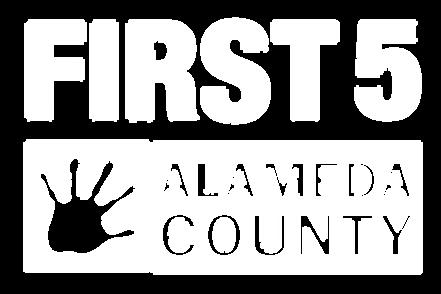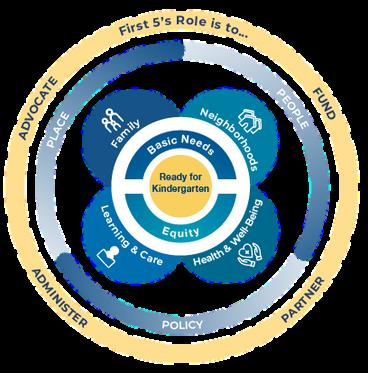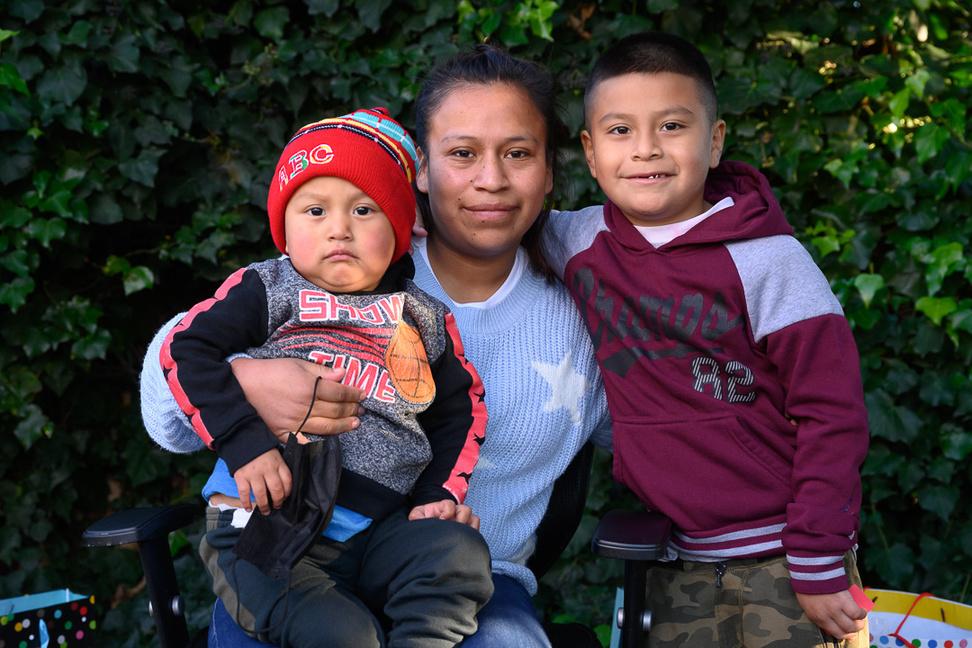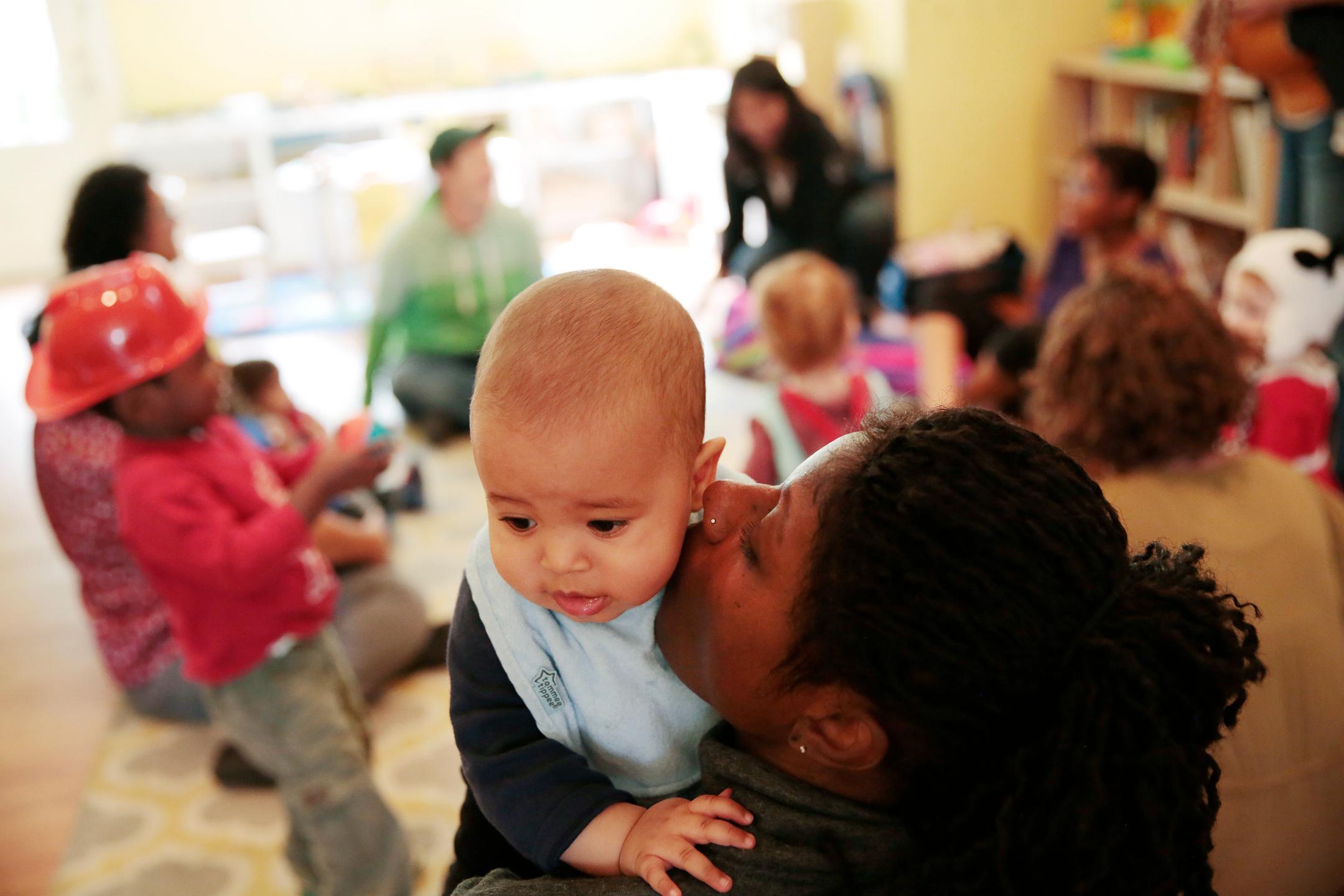POLICY AGENDA TO ADVANCE EQUITY 2023

► We believe that First 5’s policy work should address structural racism and childhood poverty and their impact on child development, family well-being, and our “north star” kindergarten readiness.


Children are ready for kindergarten when they develop in environments that support them and their families. Families need well-paying jobs, access to quality, affordable early care and education, transportation, health care, and safe places to live, play, and connect. Families also require freedom from discrimination rooted in racism and classism.
Our policy work is most effective when families take a leadership role in policy development. We believe that data, research, and evaluation should be conducted in partnership with the community. Public systems are most effective when they accessible and responsive to families’ needs.
POLICY AGENDA 2023 | PAGE 1
► 2021-22 Kindergarten Readiness Assessment

Every two years since 2008, First 5 Alameda has sponsored a KRA study to inform equitable programs, policies, and investments for children ages 0-5. This most recent study gathers data from more than 3,000 Alameda County community members, 2,015 parents and caregivers, 694 early care and education professionals, and 284 transitional kindergarten and kindergarten teachers.
As part of First 5’s commitment to equity-based practices, the KRA process was designed to be participatory with the input of the Research Advisory Group. This group was composed of educators, representatives from community-based organizations, policymakers, parents, and caregivers who were compensated for their time. Advisory Group members provided input on survey design, recruitment and outreach, interpretation of the results, and the final report recommendations. The recommendations will shape a policy response that supports communities, families, and schools in addressing inequities that have been exacerbated since the onset of the COVID-19 pandemic.
SPOTLIGHTS FOR ACTION
► We take a systems building approach by advancing solutions that move the early childhood system from a patchwork of services to an integrated ecosystem.
First 5’s programming, investments, and policy agenda are multipronged and cross Place, People, and Policy to improve conditions in the areas we support Neighborhoods, Family, Health & Well-Being, and Learning & Care.

Neighborhoods Health & Well-Being Family Learning & Care
Neighborhoods
► Community Leadership: Policies are most effective when developed with family and community lived experience, leadership, and voice
► Community Voice & Vitality
Support community leadership and use systems change to proactively center families with an equity lens. Invest in parent/caregiver and community capital and strengths. Advocate for programs and policies that respect the lived experiences of Black, Indigenous, people of color; families with low incomes; refugees; undocumented families; and unhoused families.
► Father Engagement
Promote the adoption and integration of the Father-Friendly Principles and father specific services across community programs and public systems.
► Community-Centered Data & Research
Recognize families and communities as conveners, storytellers, and owners of the data to advance data-driven decisionmaking. Engage with community informed research to articulate the meaningful impact that place-based strategies have for families.

► Parent & Caregiver Leadership
Include parent and community voice in program design, research, evaluation, and data. Provide resources for providers and community partners to support parent and caregiver leadership and engagement. Promote the inclusion of historically underrepresented family members in programs and services.
POLICY AGENDA 2023 | PAGE 3
► Thriving neighborhoods are essential for families and children. Neighborhoods require community-driven investment and equitable economic development, especially in communities that have been impacted by structural racism and poverty.

► Neighborhoods Ready for School
Partner with Neighborhoods Ready for School grantees, community partners, and government to address barriers to resources for families, support cross system service coordination, and inform policy advocacy and service delivery. Advocate for Family Resource Centers as a place-based community-driven strategy with multigenerational benefits.
► Family Friendly Communities
Partner with communities, local organizations, and government to improve the built environment and public infrastructure, transportation access, and physical and environmental conditions that support families. Increase access to affordable housing, access to safe parks and green spaces. Address community safety and reduce environmental hazards. Promote eco-friendly land use and development.
► Equitable Community Economic Development
Increase job creation, workforce development with livable wages, and support for small businesses in communities where families live. Promote the use of public funds to provide economic opportunities for neighborhood residents. Disrupt the impacts of gentrification, and extractive and exploitive economic policies in BIPOC communities.
POLICY AGENDA 2023 | PAGE 4
Family
Financial Stability: Policies and programs acknowledge the strain low income/working families experience and guarantee families have a right to sufficient income and supports to ensure families can meet their basic needs and create a safe, healthy and enriching home environment
► Income & Basic Needs
Support Universal Basic Income and an improved public safety net. Scale policies and programs that advance economic justice and living wage jobs. Support workforce development including apprenticeships and the use of public resources to support access to secondary and technical education.
► Housing
Partner with community organizations and county agencies to center unhoused pregnant people and families. Increase the supply of and access to affordable housing for families.

► Asset/Credit Building & Debt Relief
Offer work support, utility and transportation assistance, asset building, including college savings, and fair credit and lending practices. Advocate for policies that reduce the burdens of fines, fees, and debt for families with young children, including the cost of phone calls for families impacted by the justice system.
► Digital Equity
Ensure access to reliable, high-speed internet, adequate devices that facilitate learning and economic development, and digital literacy supports.
POLICY AGENDA 2023 | PAGE 5
► Systems that work for families: Now is the time to imagine, co-create, and build an early childhood system of care that centers the health and well-being of families/caregivers by ensuring that everyone has access to culturally responsive services that mitigate childhood adversity, are available in families’ language, in their community, and support children with special needs.
► Statewide Systems Reform
Engage in legislative and administrative advocacy to ensure equitable implementation of policies and access to programs that promote child and family health and well-being (e.g. CalAIM, the new Doula and CHW Medi-Cal benefits, Medi-Cal redetermination, child-care slots wage increase, investments for community-based mental health services for children and families, elimination of administrative barriers).
► Child Welfare System
► Early Identification (Screening), Care Coordination & Family Navigation Scale and sustain cohesive systems for families that support access to screenings, well-child visits, child development, and family well-being supports. Support strategies that address the physical, behavioral, developmental, dental, and social determinants (e.g. housing and food,) including care management through Help Me Grow and pediatric practices, Project DULCE, and Family Resource Centers.
Advocate for systems that support children and families. Advance system practices that promote prevention and reunification and anti-racist/classist practices.

POLICY AGENDA 2023 | PAGE 6
Health & Well-Being
► Whole Community, Whole-Family, Whole-Child: Use a holistic lens on the policies and practices that can improve the well-being of children.
► Care for Communities
Ensure that the health and mental health needs of children, families, and communities are met with culturally and linguistically accessible services.

► Workforce
Grow, support, and diversify community and family-serving health workforce. (e.g., nurses, physician assistants, doulas, community health workers, peer supporters, and mental health workers.)
► Community Partnerships
Ensure affordable, culturally responsive care coordination and mental health services and supports are available where families live and where services and care is provided, e.g. mental health consultation in Early Care and Education.
► Food as Care
Increase children’s access to affordable nutritious foods in their home, community, and in their early care and education settings.
POLICY AGENDA 2023 | PAGE 7
► Birth Equity & Reproductive Justice: Promote strategies, programs, and policies that promote the right to maintain personal bodily autonomy, and safe and healthy pregnancies and birth outcomes for Black women/birthing people and their babies.

► Local implementation
Partner locally to support the implementation of new state and federal policies that aim to advance birth equity and reproductive justice, including access to postpartum care, full spectrum doula supports, continuous Medi-Cal eligibility for children 0-5, collection and analysis of data related to birth disparities and related research, and workforce opportunities for BIPOC people in the health field.
► Advocacy
Engage state and federal agencies and elected officials about the important role of birth equity to advance racial and economic justice. Advance policies and programs that address racism as the root cause in adverse pregnancy and birth outcomes for Black women and birthing people
POLICY AGENDA 2023 | PAGE 8
Learning & Care
► Access & Quality: Increase access to quality early care and education through a mixeddelivery system that builds on each child’s unique individual and family strengths, cultural background, language(s), abilities, and experiences. Strengthen learning and care opportunities for infants and toddlers and expand the infrastructure of care through expanded facilities and technology to support connection to care.
► Kindergarten Transitions
Expand access to kindergarten readiness activities and transition supports that are accessible to all families, including resources for Family, Friend, and Neighbor providers.
► Workforce: Support policies and practices that strengthen the diverse early care and education workforce through livable wages, safe and supportive workplaces, access to professional development, and health and well-being.
► Early Childhood Apprenticeship

Leverage local, state, and federal funding to expand Alameda County’s model for CalWORKs (co-funded in partnership with Tipping Point and Alameda County Social Services).
► Local Investments: Partner to prepare the ECE system for broad investment through dedicated local funding streams for families with young children.

POLICY AGENDA 2023 | PAGE 9 first5alameda.org












